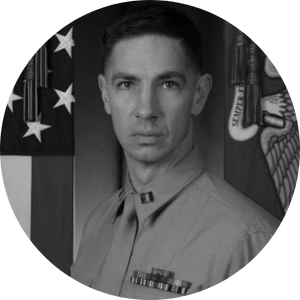Hero

Header and Body
Tune in April 16 at 2 PM ET
The rise of Agentic AI marks a pivotal shift in technology, moving far beyond chatbots and automation. These advanced systems will soon autonomously make critical decisions, execute complex tasks, and interact with multiple platforms—without human oversight. For public sector agencies, this means faster decision-making, enhanced efficiency, and stronger cybersecurity. But with these benefits come significant risks: compliance violations, AI-driven cyberattacks, and potential loss of control over critical systems.
As Agentic AI evolves, public sector organizations face the challenge of balancing innovation with security. In this webinar, GovExec and HUMAN Security will explore the implications of Agentic AI for government agencies, discussing how to mitigate risks while unlocking its potential. Experts will share insights on how AI can enhance national security, streamline operations, and improve citizen services, while also addressing the critical need for robust safeguards against security threats.
Join us to gain a deeper understanding of the opportunities and risks of Agentic AI, and learn strategies to ensure it supports public sector missions without compromising security, privacy, or control.
Speakers

Christopher D. Clark
Captain and Artificial Intelligence Lead, Service Data Office
US Marine Corps

Christopher D. Clark
Captain and Artificial Intelligence Lead, Service Data Office
US Marine Corps
Captain Christopher D. Clark enlisted in the Marine Corps in 2008. His initial assignment was with the Headquarters & Headquarters Squadron Futenma, where he served as a Financial Analyst until 2010. He then moved to Marine Corps Forces Pacific, holding the position of Budget Chief until 2013, where he was responsible for overseeing financial transactions worth $38
million annually.
In 2012, Captain Clark completed an Associate of Arts in General Studies at Hawaii Pacific University, which assisted in his selection for the Marine Enlisted Commissioning Education
Program. He continued his education at The Ohio State University, earning a Bachelor of Science in Physics in 2016, followed by commissioning as a Communications Officer in the Marine Corps.
Captain Clark served as the Staff Communications Officer (S-6) for Marine Aircraft Group 24 (MAG-24) from 2017 to 2021. In this role, he managed the communications requirements for the Group and its seven Squadrons in garrison, exercise, and deployment requirements across the Pacific Region to include multiple Marine Corps Rotational Forces Darwin deployments, exercises in South Korea and the Philippines, and Service Level Training Exercises as the Aviation Command Element S-6.
Captain Clark obtained a Master of Science in Cybersecurity Management and Policy from the University of Maryland Global Campus in 2020 while working as the MAG-24 S-6, complementing his military duties and expertise in the field of information security.
Captain Clark was then selected to attend the Naval Postgraduate School, graduating in 2023 with a Master of Science in Computer Science, specializing in Artificial Intelligence. For his thesis, he created a novel adversarial example attack using the A* Search algorithm that creates adversarial images that cause deep neural networks to misclassify images with minimal added noise. This thesis involved significant work in building, training, and attacking advanced machine learning models in white and black box settings.
Currently, Captain Clark is the Marine Corps Deputy Commandant for Information, Service Data Office Artificial Intelligence Lead Officer, a role that utilizes his extensive academic background and experience in the Marine Corps. He is the author of the USMC Artificial Intelligence Strategy, is leading the development of the USMC Artificial Intelligence Implementation Plan, and is a Doctor of Engineering in Artificial Intelligence candidate at George Washington University.

Frank Walsh
Field Chief Technology Officer
HUMAN Security

Frank Walsh
Field Chief Technology Officer
HUMAN Security
Frank Walsh currently serves as Field CTO at HUMAN Security and is a security practitioner with a history of working in the computer and network security industry. He possesses deep knowledge of server, serverless, cloud, endpoint and network security technologies in the current marketplace, their capabilities, and the techniques they employ to function.

Moderator
Shea Connelly
Deputy Editor, Branded Content
GovExec

Shea Connelly
Deputy Editor, Branded Content
GovExec
Resources
HUMAN or Not: Bots in the Public Sector
From social media to spam to automated tax assistance, bots have become a key player in the digital world. For government agencies, which harbor some of the most sensitive data in the country Bot Basics Short for robot, bots are automated software programs that perform repetitive tasks on a network. Bots follow instructions that mimic human behavior much faster than any human could do, and can operate without human intervention. but also face mandates to improve their efficiency and cybersecurity, the explosion of bots can be a double-edged sword.


